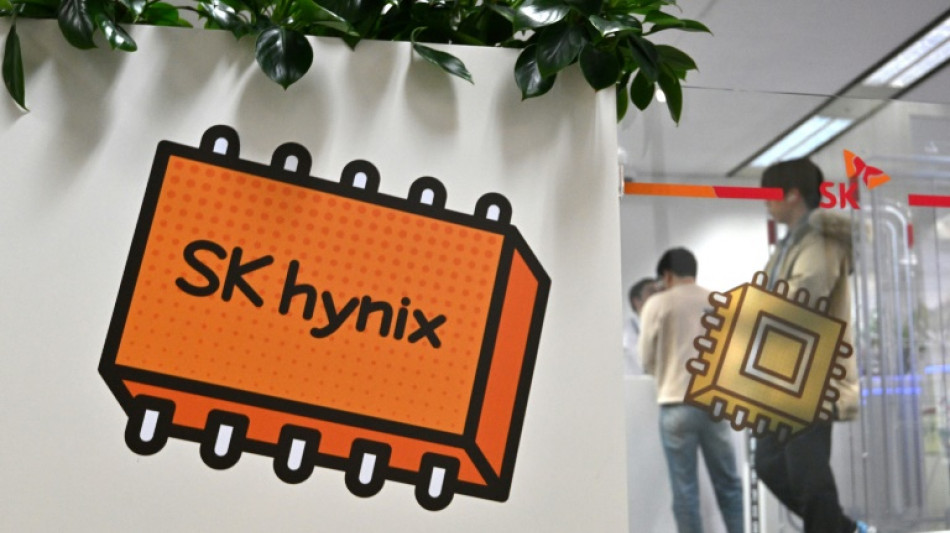
-
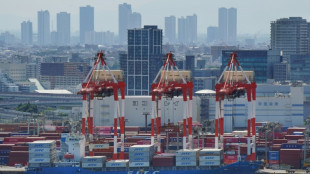 Stocks mostly higher before US-Russia summit
Stocks mostly higher before US-Russia summit
-
Bayern's Bundesliga crown up for grabs after rocky summer

-
 Arsenal face revamped Man Utd as new-look Liverpool open Premier League season
Arsenal face revamped Man Utd as new-look Liverpool open Premier League season
-
South Korea president vows to build 'military trust' with North
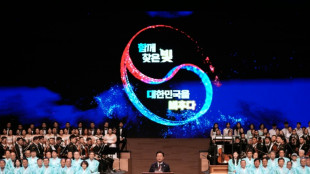
-
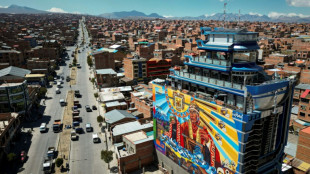 'Never again': Indigenous Bolivians sour on socialism
'Never again': Indigenous Bolivians sour on socialism
-
Indonesia's president touts economy, social welfare drive
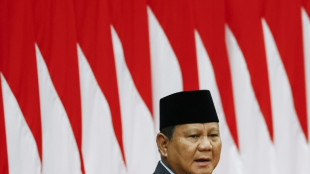
-
 World plastic pollution treaty talks collapse with no deal
World plastic pollution treaty talks collapse with no deal
-
Facing US tariffs, India's Modi vows self-reliance
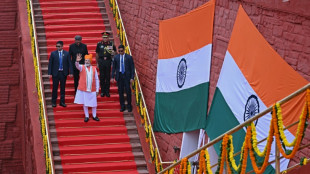
-
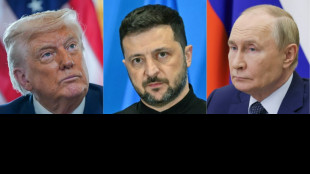 Trump to meet Putin in high-stakes Alaska summit
Trump to meet Putin in high-stakes Alaska summit
-
Indian rescuers scour debris after 60 killed in flood

-
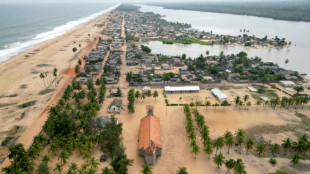 Ivory Coast village reburies relatives as rising sea engulfs cemetery
Ivory Coast village reburies relatives as rising sea engulfs cemetery
-
Stressed UK teens seek influencers' help for exams success

-
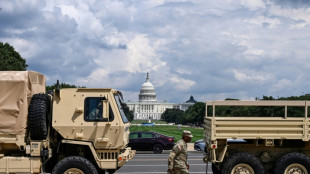 National Guard deploys 800 personnel for DC mission, says Pentagon
National Guard deploys 800 personnel for DC mission, says Pentagon
-
Japan emperor expresses 'deep remorse' 80 years after WWII
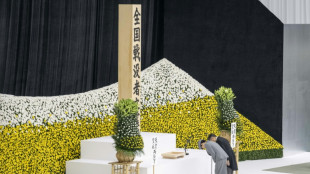
-
 With waters at 32C, Mediterranean tropicalisation shifts into high gear
With waters at 32C, Mediterranean tropicalisation shifts into high gear
-
Historic Swedish church being moved as giant mine casts growing shadow

-
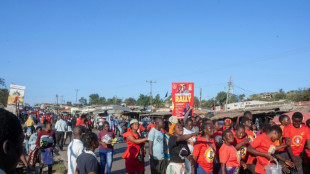 Malawi's restless youth challenged to vote in September polls
Malawi's restless youth challenged to vote in September polls
-
Indonesian roof tilers flex muscles to keep local industry alive

-
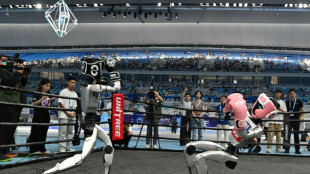 World's first humanoid robot games begin in China
World's first humanoid robot games begin in China
-
Scott Barrett returns to lead All Blacks against Argentina

-
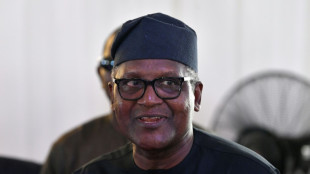 Five things to know about Nigeria's oil sector
Five things to know about Nigeria's oil sector
-
New compromise but still no deal at plastic pollution talks
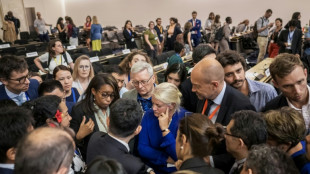
-
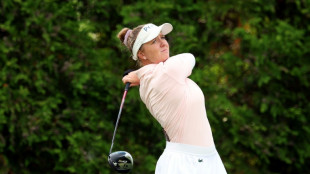 France's Cernousek seizes lead at LPGA Portland Classic
France's Cernousek seizes lead at LPGA Portland Classic
-
Putin-Trump summit: What each side wants
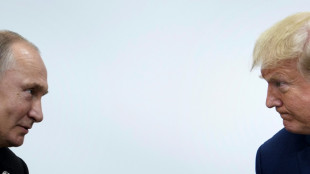
-
 Desperate Myanmar villagers scavenge for food as hunger bites
Desperate Myanmar villagers scavenge for food as hunger bites
-
Qualifier Atmane stuns Rune to set up Sinner semi-final in Cincinnati

-
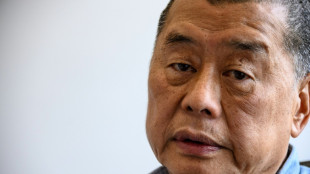 Hong Kong tycoon Jimmy Lai's security trial delayed over health concerns
Hong Kong tycoon Jimmy Lai's security trial delayed over health concerns
-
Asia stocks mixed before US-Russia summit
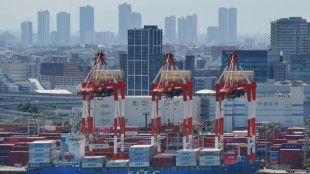
-
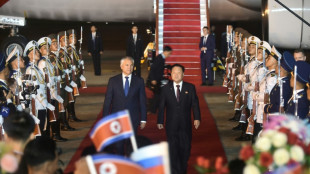 Putin hails North Korean troops as 'heroic' in letter to Kim
Putin hails North Korean troops as 'heroic' in letter to Kim
-
Fleeing the heat, tourists explore Rome at night, underground

-
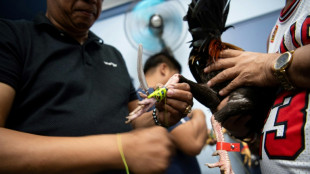 Online cockfighting thrives in Philippines despite ban and murders
Online cockfighting thrives in Philippines despite ban and murders
-
Keeping cool with colours -- Vienna museum paints asphalt to fight heat

-
 Raising the bar: Nepal's emerging cocktail culture
Raising the bar: Nepal's emerging cocktail culture
-
El Salvador plans 600 mass trials for suspected gang members
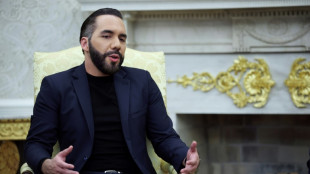
-
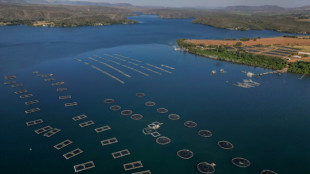 Trump's tariffs drown Brazil's fish industry
Trump's tariffs drown Brazil's fish industry
-
Hong Kong tycoon Jimmy Lai's collusion trial resumes after delay
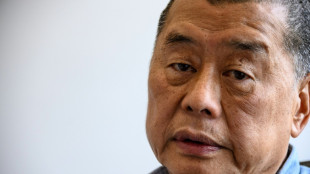
-
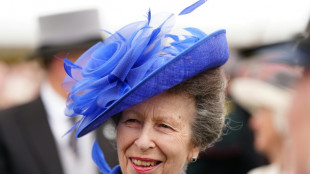 Britain's Princess Anne turns 75 with typically minimal fuss
Britain's Princess Anne turns 75 with typically minimal fuss
-
Japan posts modest growth despite US tariffs
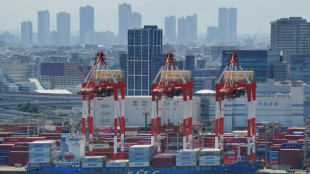
-
 Rugby Championship kicks off amid uncertain future
Rugby Championship kicks off amid uncertain future
-
Israeli far-right minister backs contentious West Bank settlement plan

-
 Hot putter carries MacIntyre to three-shot lead at BMW Championship
Hot putter carries MacIntyre to three-shot lead at BMW Championship
-
'Ridiculous': How Washington residents view the new troops in town
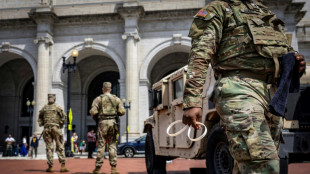
-
 Global plastic pollution treaty talks extended in 'haze' of confusion
Global plastic pollution treaty talks extended in 'haze' of confusion
-
Trump's tariffs have not reduced Panama Canal traffic -- yet
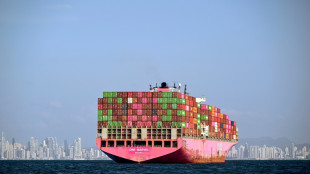
-
 YouTube turns to AI to spot children posing as adults
YouTube turns to AI to spot children posing as adults
-
Sky's the limit for Duplantis ahead of 'super-sick' Tokyo worlds

-
 New clashes in Serbia as political crisis escalates
New clashes in Serbia as political crisis escalates
-
Sinner swamps Auger-Aliassime in Cincinnati power display

-
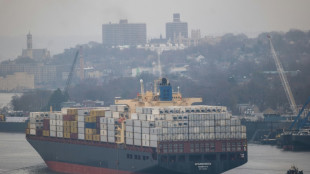 Oil prices rise ahead of US-Russia summit as stocks digest inflation data
Oil prices rise ahead of US-Russia summit as stocks digest inflation data
-
California to change election maps to counter Texas, governor says
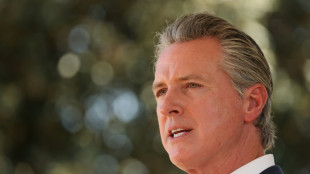

S. Korea plans extra $4.9 bn help for chips amid US tariff anxiety
South Korea on Tuesday announced plans to invest almost $5 billion extra in the country's semiconductor industry, citing "growing uncertainty" over US tariffs.
The country is a major exporter to the United States and its powerhouse chip and auto industries would suffer a hefty hit from President Donald Trump's threatened 25 percent levies.
Concerns about the sector have hammered the Seoul-listed shares of the world's largest memory chip maker Samsung, and largest memory chip supplier SK Hynix.
Officials have now stepped up to provide more cover for the economically crucial industry by announcing an extra $4.9 billion will be pumped into it through 2026.
"An aggressive fiscal investment plan has been devised to help local firms navigate mounting challenges in the global semiconductor race," the finance ministry said in a press release.
It warned "growing uncertainty" following rounds of US tariff threats had left the sector clamouring for government support.
"To foster a dynamic, private sector-led ecosystem for semiconductor innovation and growth, the government will increase its investment in the sector from 26 trillion won ($18.2 billion) to 33 trillion won," the ministry said.
Trump announced on his April 2 "Liberation Day" sweeping tariffs on its global trading partners, including the 25 percent on South Korean goods, before backtracking and suspending their implementation for 90 days.
Even so, "duties targeting specific sectors such as semiconductors and pharmaceuticals, remain on the horizon", finance minister Choi Sang-mok said during a meeting.
"This grace period offers a crucial window to strengthen the competitiveness of South Korean companies amid intensifying global trade tensions," he added.
"The government plans to expand support for the semiconductor industry, allocating 33 trillion won, with over 4 trillion won in fiscal spending set to be injected through 2026," he said.
The package includes funding for infrastructure development, including underground transmission lines at semiconductor clusters that are currently being built.
"The government will boldly support investment by semiconductor companies," said Choi, adding that the package included securing talent for the industry.
The investment is part of a large revised supplementary budget proposal of 12 trillion won ($8.4 billion), and is required to be passed by the National Assembly.
- Talks next week -
The tariffs announcement has rocked global markets, with investors uncertain over whether they are a negotiating tactic or permanent US position.
Trump has insisted he will not back down until he has reduced or even wiped out US trade deficits -- while simultaneously signalling that he is ready to negotiate.
The US trade deficit with South Korea was $66 billion in goods last year.
Seoul last week unveiled a $2 billion emergency support package to help carmakers weather the storm.
South Korea's auto-related exports to the United States total-ed $42.9 billion last year, according to officials.
Still, analysts said that for now, South Korea should not be too worried about its chips sector.
"Unlike automobiles, which are already subject to tariffs, semiconductors are unique in that the United States lacks viable substitutes," Kim Dae-jong, a professor at Sejong University, told AFP.
"Our companies are building large-scale semiconductor plants in the US, contributing to local job creation, a point that will likely be emphasised," Kim added.
"Behind-the-scenes negotiations will likely continue, and there is a chance they could conclude on a positive note. There also remains the possibility that tariffs will be adjusted item by item in the future."
Trump last week spoke to South Korean Prime Minister Han Duck-soo, who is acting as president since Yoon Suk Yeol was removed from office for attempting to subvert civilian rule.
US Treasury Secretary Scott Bessent said Monday that trade talks with South Korea would take place next week.
B.AbuZeid--SF-PST
